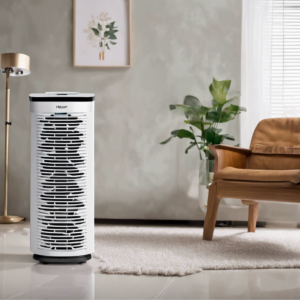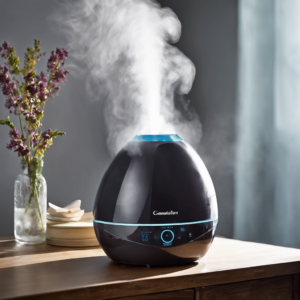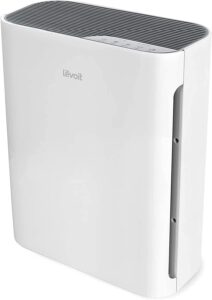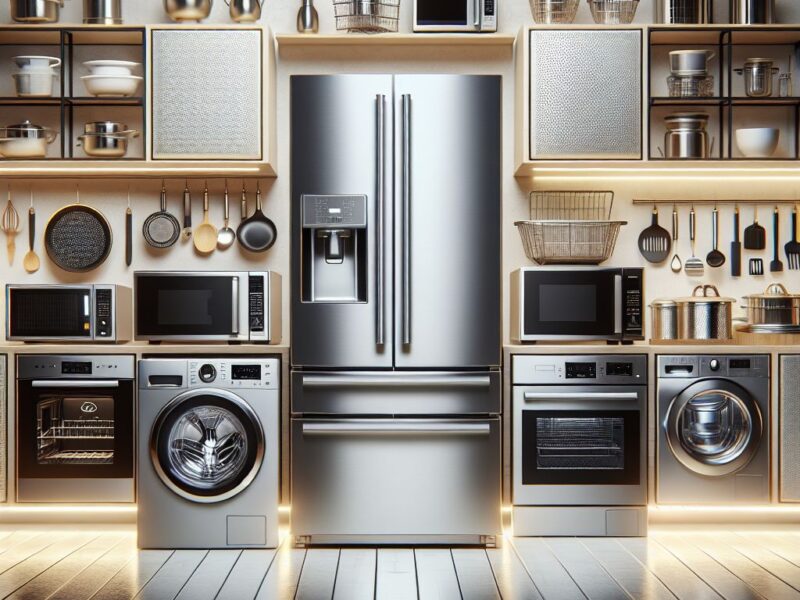When you’re on a mission to ensure that every breath you take is as clean as it can be, knowing the ins and outs of air purifiers is essential. HEPA, which stands for High-Efficiency Particulate Air, is a type of air filter that you’ll often hear about. Let’s cut through the jargon and get to the heart of why these filters are the gold standard for clean air.
Key Takeaways
- HEPA filters are renowned for their ability to trap at least 99.97% of airborne particles as small as 0.3 microns.
- Not all air purifiers are created equal—look for “True HEPA” filters for maximum efficiency.
- Consider the size of your room, the purifier’s CADR rating, and additional features like smart sensors when purchasing.
- Regular maintenance, including filter replacement, is crucial for optimal performance of HEPA air purifiers.
- Be wary of misleading terms like “HEPA-type” or “HEPA-like” which do not meet the True HEPA standard.
Why HEPA Filters are Your Best Bet for Clean Air
If you’re wondering what makes HEPA filters stand out, it’s their incredible efficiency. These filters are rigorously tested to meet specific standards. A True HEPA filter, for example, must capture at least 99.97% of particles that are 0.3 microns in diameter. This size is considered the most penetrating particle size (MPPS), which means it’s the hardest size for filters to trap. This level of filtration is crucial, especially for those with allergies or asthma, because it ensures the air is significantly cleaner and healthier to breathe.
What HEPA Filters Do?

Imagine all the tiny particles floating around that you can’t see—dust, pollen, pet dander, mold spores, and even smoke. A HEPA filter’s job is to capture these microscopic intruders, preventing them from recirculating into the air. It’s like having a microscopic net that catches nearly all the unwanted particles that would otherwise end up in your lungs.
But how do they manage this feat? It’s not just a simple mesh. HEPA filters are composed of a complex web of fibers that trap particles in four different ways: inertial impaction, diffusion, interception, and sieving. The result is that air passing through the filter comes out clean, while particles are left stuck in the filter’s fibers.
The Science Behind HEPA Filtration
At the core of a HEPA filter’s prowess is the interwoven network of fibers. Particles are not just blocked; they’re captured through a combination of physical processes. Larger particles crash into the fibers and stick to them—a process known as inertial impaction. Medium-sized particles, as they zigzag through the filter, get close enough to the fibers to be captured by interception. The very smallest particles, jostled by air molecules, move erratically and are caught by diffusion. Finally, some particles are sieved, meaning they are simply too large to pass through the spaces between fibers.
Therefore, when you’re choosing a HEPA air purifier, you’re not just buying a device; you’re investing in a scientifically proven method to clean the air you breathe.
Factors to Consider Before Purchase
Before you rush to buy a HEPA air purifier, there are several factors to weigh. First, consider the size of the room where you’ll be using the purifier. You’ll want a unit that’s powerful enough to clean the air in the entire space. This is where the Clean Air Delivery Rate (CADR) comes into play. It measures the volume of clean air that the purifier can deliver per minute. A higher CADR means the purifier can filter air more quickly and efficiently.
Another factor is the type of particles you’re most concerned about. If you have pets, for example, you’ll want a purifier that excels at capturing pet dander. If someone in your household smokes, a purifier with an activated carbon filter in addition to a HEPA filter can help remove smoke and odors.
Lastly, think about the maintenance requirements. All air purifiers need their filters changed or cleaned regularly, so consider the cost and frequency of filter replacement. Some filters are washable, while others are disposable and must be purchased regularly.
Best Features of HEPA Air Purifiers
When shopping for a HEPA air purifier, look for features that enhance performance and convenience. A True HEPA filter is non-negotiable—it’s the assurance that the purifier meets the high standards of particle removal. But beyond that, some purifiers offer additional layers of filtration, like pre-filters for large particles and activated carbon filters for odors and gases.

Smart features can also make a difference. Some purifiers come with air quality sensors that adjust the purifier’s speed based on the level of contaminants detected. This means the purifier works harder when needed and conserves energy when the air is cleaner.
Must-Have Features for Optimal Performance
For your HEPA air purifier to do its job effectively, it must have:
- A genuine True HEPA filter.
- An appropriate CADR rating for the size of your room.
- A sealed system that ensures all air passes through the filter.
Without these key features, your air purifier may not capture particles as efficiently as it should, leaving you with less-than-ideal air quality.
Nice-to-Have Extras for Convenience
Besides the essentials, there are additional features that can enhance your experience with the air purifier:
- Programmable timers to run the purifier at set times.
- Remote controls or smartphone apps for easy adjustments.
- Filter change indicators that tell you when it’s time for a new filter.
These features aren’t necessary for clean air, but they can make your life a little easier.
Debunking Common Myths About HEPA Air Purifiers
There’s a lot of misinformation out there about HEPA air purifiers. Let’s clear the air on some common myths: For more information, read about the top 5 benefits of using high-quality air filters in your home.
HEPA Myths vs. Facts
Myth: Any filter labeled HEPA is good enough.
Fact: Only True HEPA filters meet the strict standards for particle removal. “HEPA-type” or “HEPA-like” filters do not.
Myth: HEPA air purifiers can remove all pollutants.
Fact: While HEPA filters are highly effective at capturing particles, they do not remove gases or odors. That’s where additional filters like activated carbon come in.
Myth: Once you have a HEPA air purifier, you don’t need to dust or vacuum.
Fact: Air purifiers can reduce the amount of dust and allergens in the air, but they can’t clean surfaces or replace regular cleaning.
Why More Expensive Isn’t Always Better
Just because an air purifier is pricier doesn’t mean it’s the best option for you. Some models come with a lot of bells and whistles that you might not need. Focus on the features that matter most for your situation, like the filter quality, room size, and specific concerns like allergies or pet dander. Sometimes, a simpler, more affordable model with a True HEPA filter is all you need for clean air.

Maintaining Your HEPA Air Purifier
To keep your HEPA air purifier running at peak performance, regular maintenance is key. Always follow the manufacturer’s instructions for filter care. Some HEPA filters are permanent and can be vacuumed clean, while others are disposable and will need to be replaced every so often. Generally, you should check your filter every three to six months, but this can vary based on usage and air quality.
Remember, a clogged filter can’t clean air effectively and may even release trapped particles back into the air. So, staying on top of filter maintenance not only ensures cleaner air but also prolongs the life of your air purifier.
Longevity Tips for Your Air Purifier
Making your HEPA air purifier last is all about proper care and maintenance. Always use it according to the manufacturer’s instructions. Avoid running it non-stop at the highest setting, as this can wear out the motor faster. Instead, use the auto-mode if your purifier has it, which adjusts the fan speed based on the air quality. This not only saves energy but also extends the life of the unit.
Keep your air purifier in a place where it can pull in and expel air freely. If it’s too close to furniture or walls, it has to work harder, which can lead to premature wear. And of course, regular cleaning and timely filter replacement are crucial. A clean machine is an efficient machine that lasts longer.
Frequently Asked Questions (FAQ)
When it comes to HEPA air purifiers, people often have questions about their effectiveness and maintenance. Let’s tackle some of the most common queries.
Can HEPA Air Purifiers Capture Viruses?
HEPA filters are incredibly efficient at trapping particles as small as 0.3 microns, which includes many viruses. However, viruses often travel on larger respiratory droplets, which HEPA filters can easily capture. While no air purifier can guarantee the complete removal of all viruses, a True HEPA filter can significantly reduce the concentration of viruses in the air.
How Often Should Filters Be Replaced?
The frequency of filter replacement depends on several factors, including the air quality in your home, how often you use the purifier, and the type of filter. Generally, manufacturers recommend replacing HEPA filters every 12 to 18 months. Pre-filters and carbon filters, which capture larger particles and odors, may need to be replaced more frequently—every 3 to 6 months. Always check your air purifier’s manual for specific recommendations.
- Check the pre-filter every 2-4 weeks and clean or replace as needed.
- Replace the carbon filter every 3-6 months or as indicated by the purifier’s sensor or timer.
- Change the HEPA filter every 12-18 months, or sooner if you notice a decrease in air quality or airflow.
Remember, staying on top of filter maintenance is key to ensuring your air purifier works effectively and lasts as long as possible.



One thought on “HEPA Air Purifier Guide: Top Filters & Buying Considerations”